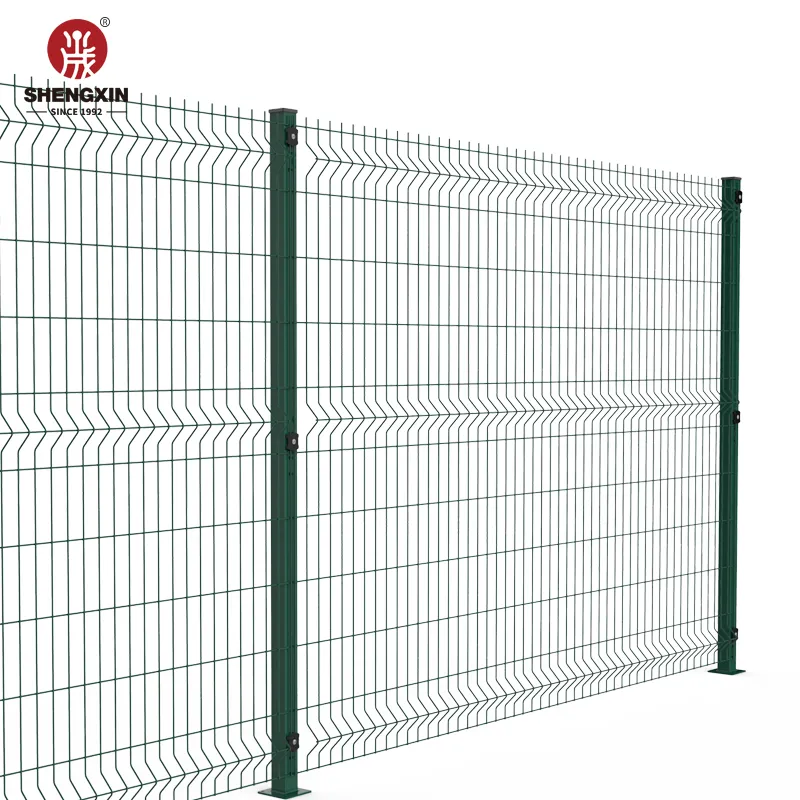
Aug . 15, 2024 15:50 Back to list
Suppliers of Temporary Fencing Solutions for Construction Sites and Event Management Needs
Understanding Temporary Fence Suppliers A Guide for Your Project Needs
When it comes to construction sites, events, or any scenario requiring secure perimeters, temporary fences play a crucial role. Temporary fencing offers a reliable solution for controlling access, ensuring safety, and providing a designated area for various activities. The market hosts a variety of temporary fence suppliers, each catering to a unique set of needs and requirements. This article explores the importance of temporary fence suppliers, the types of fences available, and key considerations for selecting the right supplier for your project.
The Importance of Temporary Fencing
Temporary fencing serves several essential purposes across different sectors. In construction, it helps safeguard the site from unauthorized access, protecting both workers and equipment. In outdoor events, such as concerts or festivals, temporary fences help manage crowds and ensure that attendees remain in designated areas. Additionally, these fences can be employed during emergencies, such as natural disasters, to prevent public access to hazardous locations.
Procuring temporary fencing through reliable suppliers not only guarantees compliance with local regulations but also ensures that the fencing is durable and suited for your specific needs. The choices available can vary widely in terms of materials, design, and applications, making it crucial to partner with knowledgeable suppliers.
Types of Temporary Fences Offered by Suppliers
Temporary fence suppliers typically offer various types of fencing solutions, each tailored for specific applications
1. Chain Link Fencing This is one of the most common types of temporary fencing, favored for its strength and visibility. Chain link fences are typically made of galvanized steel, providing a robust barrier that can withstand environmental conditions.
2. Mesh Fencing Ideal for events, mesh fencing allows visibility while still providing a secure perimeter. It is lightweight, portable, and often used for crowd control at festivals, marathons, and other large gatherings.
3. Panel Fencing Also known as crowd control barriers, panel fences are frequently used in events or construction sites. These are easy to set up and dismantle, making them highly convenient for projects with a limited time frame.
4. Barbed Wire Fencing For projects requiring an additional level of security, barbed wire temporary fencing can be a good choice. This type is typically used in high-security areas to deter trespassing.
temporary fence suppliers

5. Privacy Fencing When aesthetics or privacy is a concern, suppliers often provide temporary privacy fencing that blocks visibility. This is especially useful for events where attendees may not want their activities to be observed.
Choosing the Right Supplier
Selecting a qualified temporary fence supplier involves several considerations
- Experience and Reputation Look for suppliers with a strong track record in the industry. Customer reviews and testimonials can provide insight into their reliability and service quality.
- Product Variety A good supplier should offer a range of fencing options that can cater to various project needs. This flexibility ensures that you can find the right solution for your specific requirements.
- Quality and Compliance Ensure that the supplier’s products meet local safety standards and regulations. Quality fencing is essential for durability and effectiveness.
- Customer Service Consider suppliers who provide excellent customer service, assisting you in selecting the right products and addressing any questions or concerns throughout your project.
- Pricing While cost shouldn’t be the sole factor, it is important to find a supplier who offers competitive pricing without compromising on quality.
Conclusion
Temporary fence suppliers are vital partners for anyone involved in construction, event management, or security planning. Understanding the different types of temporary fencing available and selecting the right supplier can significantly affect the success of your project. Prioritizing quality, reliability, and service are key to establishing a secure perimeter that meets your specific needs. By carefully considering your options, you can ensure that your temporary fencing solution is effective, efficient, and, most importantly, safe.
-
Powder Coated Double Wire Mesh Fence for Germany Market - Anping County Shengxin Metal Products Co., Ltd.
NewsJul.21,2025
-
Powder Coated Double Wire Mesh Fence - Anping County Shengxin Metal Products Co., Ltd | Durable, Eco-Friendly
NewsJul.21,2025
-
Powder Coated Double Wire Mesh Fence-Germany Market|Corrosion Resistance&Customizable Fencing
NewsJul.21,2025
-
Powder Coated Double Wire Mesh Fence - Anping County Shengxin Metal Products Co., Ltd | Durable, Aesthetic, Eco-friendly
NewsJul.21,2025
-
Powder Coated Double Wire Mesh Fence for Germany Market-Anping County Shengxin Metal Products Co., Ltd|Durable,Eco-Friendly
NewsJul.21,2025
-
Durable and Aesthetic Home Garden Steel Picket Fence Panels - Galvanized and Powder Coated|Anping County Shengxin Metal Products Co., Ltd
NewsJul.21,2025
